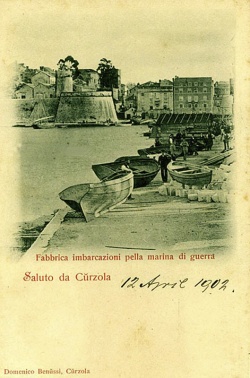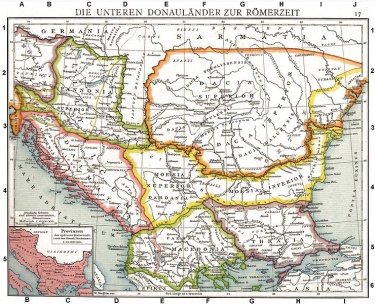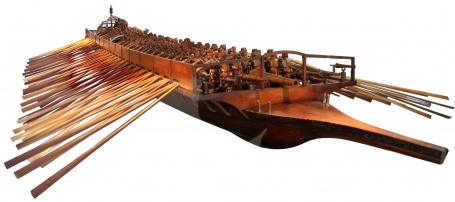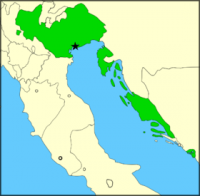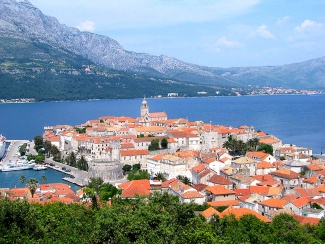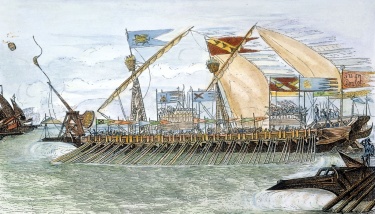Difference between revisions of "Directory:Korcula History 2"
m (→Historic classifies of Korcula: Neretva pirates) |
(→Historic classifies of Korcula: expanded) |
||
| Line 135: | Line 135: | ||
Paul Hollander: {{Cquote| ''Public attitudes in former communist countries have been conflicted because of the arguable complicity of many citizens in keeping the old system in power. A predominant attitude in Eastern Europe and Russia toward the former communist systems has been a mixture of oblivion, denial, and repression'' <ref>http://www.cato.org/publications/development-policy-analysis/reflections-communism-twenty-years-after-fall-berlin-wall</ref>}} | Paul Hollander: {{Cquote| ''Public attitudes in former communist countries have been conflicted because of the arguable complicity of many citizens in keeping the old system in power. A predominant attitude in Eastern Europe and Russia toward the former communist systems has been a mixture of oblivion, denial, and repression'' <ref>http://www.cato.org/publications/development-policy-analysis/reflections-communism-twenty-years-after-fall-berlin-wall</ref>}} | ||
| + | |||
| + | Trying to re-tell the history of this part of the world (old Dalmatia part of [[Croatia]]) is fraught with problems. The [[Titoism and Totalitarianism|Yugoslav Communist party]] created historic falsehoods to promote its own aggressive political authoritarian agenda. | ||
| + | |||
| + | We can definitely confirm that from the 9th century onwards there were '''two ethnic''' communities living on the island in the middle ages, one being descendants of the Roman Empire and the other being of Slavic descent. <ref>[http://books.google.com.au/books?id=p3oGybOY1w4C&pg=PA103&dq=korcula+Venice++Slavs&hl=en&ei=oMBjTJPQBoicvgPkpPCeCg&sa=X&oi=book_result&ct=result&resnum=6&ved=0CE4Q6AEwBQ#v=onepage&q=korcula%20Venice%20%20Slavs&f=false When Ethnicity Did not Matter in the Balkans:] by John Van Antwerp Fine. (p103)</ref><ref>Smiciklas, ''CD'' V, (p237); N. Klaic, ''Povijest Hrvata u Razvijenom'', (p130) {{Cquote|''In 1262 the Venetian praised the Slavs and Latins on the island of Korcula for submitting to the prince Venice had sent.'' }}</ref> Two languages, the Romance Latin language called ''Dalmatian'' and the old Slavic Chakavian language became the norm on the island. With time these languages started to overlap. The written language was [[Latin]]. The fact that Slavs from the then neighbouring [[Directory:Croatia|Kingdom of Croatia]] also spoke old Slavic Chakavian could indicate that this group of Slavs came from the same tribal group. | ||
| + | |||
| + | When the Serbian forces were annihilated in the ''Battle of Kosovo'' by the [[Directory:Turkey|Ottoman Empire]] in '''1389''' a large group of peoples stated to migrate westward. Venetian Dalmatia started to acquire new people in its region (i.e., Croatians, Serbs, Albanians & others). When the Black Plague <ref>Korcula was devastated by the plague in 1529 and 1558.{{citeweb|url=http://www.britannica.com/EBchecked/topic/322146/Korcula|title='''"Korcula."''' '''Encyclopædia Britannica'''. Encyclopædia Britannica Online. Encyclopædia Britannica, 2011. Tue. 8 Mar. 2011. |date=[[2011]]|accessdate=2011-03-8}} | ||
| + | * '''Encyclopædia Britannica''': " A plague devastated the town in 1529, depleting the population. The burned houses of infected persons, called kućišta..."</ref><ref>[http://books.google.com.au/books?id=ZyOYDrSkX80C&pg=PA239&dq=Italian+population+Curzola&hl=en&ei=3ptXTcqwOIjSuwPI3NyrBQ&sa=X&oi=book_result&ct=result&resnum=1&ved=0CDAQ6AEwADgK#v=onepage&q=Italian%20population%20Curzola&f=false The Shores of the Adriatic (Illustrated Edition)] by F Hamilton Jackson (p239)</ref> depleted the island's population the Venetian authorities saw a need to bring new families to the island of Korčula. Amongst these were Shotkavian Slavic speakers. With these new added migrations the Slavic speakers became a majority (this applies more to west end of the island). | ||
| + | |||
| + | If the translation of the [[Defence of Korcula|Defence of Korčula]]
from Ottoman Turkish attack in 1571, originally written by Antun (Antonio) Rozanovic is ''untainted'', we can see that the majority of the defenders of the island were by 1571 of Slavic decent. If we use this as a reference then from the mid 16th century onwards the majority of Korčula's population was indeed of Slavic origins. | ||
==Surname List from 1830's Korcula (Christening book)== | ==Surname List from 1830's Korcula (Christening book)== | ||
Revision as of 07:42, 21 July 2013
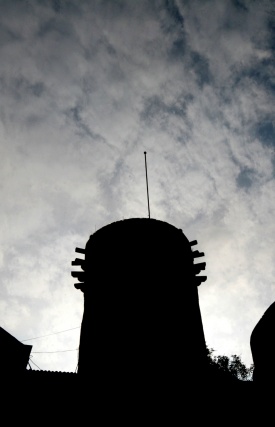
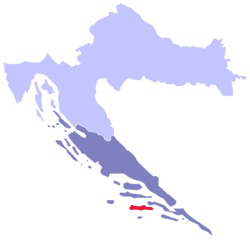
If we put aside political correctness, concerning Korcula's history
If we put aside political correctness, one could ask the question, what happened to the Roman families when the Slavs invaded the island of Korcula ? The Slavic tribes invaded the Dalmatian province of the Byzantine Empire (Eastern Roman Empire).
To this editor's knowledge there are no existing primary historical sources describing Croatian Slavs invading and settling the island of Korcula in the middle ages. It was the Republic of Venice who first mentions Slavic peoples and Korcula. In the 9th century Narantani (Slavic pirates), who are referred to today mainly as Neretva pirates (Neretvani), strategically secured some of the islands in southern Dalmatia and were starting to disrupt Venice's trade with the east (Levant). Amongst these was the island of Korčula (in Croatian the c in Korcula is pronounced ch and is written "č") . It took many decades before Venice could minimise the threat from the Narantani. It was doge Pietro II Orseolo who took the island for the Republic of Venice in the year 1000.[1] It is just assumed that a group of Slavs remained on the island.
Events could have unfolded which led to the Roman families of Korčula [2][3] (then called Corcyra Nigra):
- Being attacked and killed (or sold off as slaves).
- The survivors could have fled from Korčula to Ragusa (modern Dubrovnik), then a place of refuge.
- Maybe some survived and remained on the island or they came back after the Narantani lost control over the island.
- or all the above
Nikola Ostojic a 19th century Historian from Korčula describes the actual invasion of the Neretvani Slavs in his book "Historical Compendium of the Island of Korcula" but without a primary historical source. The book was written in 1858.
Old Roman cities of Dalmatia
The old Roman cities of Dalmatia; Epidaurum, Narona and Salona which were then part of the Byzantine-Eastern Roman Empire, were destroyed or just abandoned. This was due to the fact that the cities were not strategically set up for defence from constant invasions. According to various sources the Avars participated in these events too. The Avars were a nomadic people from Eurasian who invaded the Balkans at the same time as the Slavs. In this historic period it is recorded that many of the churches on the island of Korčula were abandoned (or destroyed) and then rebuilt at a later stage. [4] The Ostrogoths (a Germanic tribe related to the Goths) also invaded Dalmatia in the 5th century. They ruled parts of Roman Dalmatia from 480 to 535 AD. According to Nikola Ostojic, the Roman families survived. They spoke the Latin Romance language - Dalmatian.
The new population of Slavs probably settled in the centre of the island and they spoke old Slavic Chakavian. The centre of the island had its strategic qualities which allowed protection on all sides from attack by sea. It also had fertile land which allowed cultivation. After the invasion of Slavic tribes, the region stabilised to a certain extent. The Byzantines and the Republic of Venice and others, started to exert a political influence over the region. These events have been recorded historically by both Empires in chronicles of the time.
Romanized Slavs
Dalmatians Romans and the Republic of Venice brought Mediterranean cultural to the Slavs. Christianity was one aspect of this. In essence Slavs on the island were Romanized (adopted Latin culture). The 19th and 20th century theories concerning the identity of these early Korčula Slavs seem to be flawed. The latest scholarly and archaeological research [5] states that the Slavs of Southern Dalmatian were identified as neither Croatians [6] or Serbs. They were called Slavs. This term was first used by the Byzantines and was written in the 6th century in Byzantine Greek.
Later the Slavic peoples started to identify themselves and separated (or were separated by others) into different groups. It seems that in Southern Dalmatia the Slavic identity lasted much longer. As centuries went by Dalmatian Slavs started to identify themselves as just Dalmatians.
Historic quote taken from Researches on the Danube and the Adriatic written by Andrew Archibald Paton in 1861. Chapter 4 - The Dalmatian Archipelago on page 164.
- Signor Arneri from the town of Korčula stated:
| “ | These three pears you see on the wall," said he, "are the arms of my family. Perussich was the name, when, in the earlier part of the fifteenth century, my ancestors built this palace; so that, you see, I am Dalmatian. All the family, fathers, sons, and brothers, used to serve in the fleets of the Republic (Editors note: Republic of Venice); but the hero of our race was Arneri Perussich, whose statue you see there, who fought, bled, and died at the Siege of Candia,[7] whose memory was honoured by the Republic, and whose surviving family was liberally pensioned; so his name of our race. We became Arneri, and ceased to be Perussich [8] (Here is a perfect example of a Slavic family surname becoming later Venetian in character. According to Marinko Gjivoje, Perussich in modern Croatian is Piruzović.) [9] | ” |
There is archaeological evidence from 16th century where the Croatian identity was starting to be used. Stone writings in Zavalatica are dedicated to events from 889 AD. It describes a clash between the Slavic population and the Venetian army. Marinko Gjivoje wrote about the find in 1972. The stone writings use: Hrvat Dalmatinac in its writings. Hrvat means Croat in Croatian.[10]
Korcula Dialect
Korčula Dialect is a Croatian dialect from the island of Korčula in Croatia. The language base of the Korčula dialect is Chakavian Croatian (it is also intermixed with Shokavian). The Dalmatian remnants within the dialect have been referred to as Corzulot. Additionally it has influences of Venetian:
- Defora in old Venetian means "from the outside".
Regarding the Shokavian dialect below taken from-Land of 1000 Islands by Igor Rudan:
| “ | However, the clashes between the Ottoman Empire and Venetian Republic produced extensive migrations from the mainland areas, especially from today's Bosnia and Herzegovina, to the eastern parts of the islands of Brač, Hvar, Korčula, and Pag. The newcomers brought their gene pool and a variety of cultural specificities, including the “Shokavian” dialect of the Croatian language to the predominantly “Chakavian” area. The most extensive migrations to these islands occurred during the Cypriote (1571-1573), Candian (1645-1669), and Morean wars (1684-1699). The newcomers were given land and awarded special privileges “The Paštrović Privileges”. [11] | ” |
The new arrivals to the island were predominately Slavic Shokavian speakers. This must have put the Slavic speaks (Old Slavic - Chakavian + Old Slavic - Shokavian) on the island in a majority. Interesting today some Croatians and Serbs share this dialect. Venetian was still Lingua franca on the island and must have replaced Latin as the official written language.
Korcula dialect and Romance Dalmatian
- botilja/ bottle - Dalmatian: botaila
- botun/ button - Dalmatian: botaun
- dreto/ straight - Dalmatian: drat
- frigati/ to fry - Dalmatian: fregur
- kadena/ chain - Dalmatian: kataina
- kapula/ onion - Dalmatian: kapula
- katrida/ chair - Dalmatian: katraida
Historic classifies of Korcula
- The indigenous population of Korčula were Mesolithic and Neolithic peoples. Archaeological evidence has been found at Jakas Cave near the village of Zrnovo and on the west end of the island in a cave called Vela Spila. [12]
- The island was then settled by Illyrians. [13]
- A Greek colony was founded on Korčula. [14] Greek colonists from Issa (Vis) formed a small colony on the island in the 4th or 3rd century B.C.
Note A: Lumbarda Psephisma is a stone inscription which documented the event and was found on the island of Korčula.[15] The Greeks (from Issa-Vis) established a settlement on the basis of a prior agreement with the representatives of the local Illyrians who were Pil and his son Daz. A literary work from the 1st century AD "Periegesis Hellados" [16] mentions a second Greek Cnidian colony on the island of Nigra Kerkyra (Korčula).[17] According to Antun Rosanovic (Defence of Korcula in 1571) the Greeks named it Kórkyra Melaena meaning Black Corfu after their homeland and the dense woods on the island. It is not known what the Illyrians called the island.
- The island became part of the Roman province of Illyricum.[18] The Romans called the island Corcyra Nigra. After the Illyrian Wars, Roman migration followed and Roman citizens arrived on the island.[19] The Illyrian population immediately after the Illyrian Wars suffered greatly under the Romans. A large portion of the Illyrians were executed and sold off to slavery.[20] In 10 AD Illyricum was split into two provinces, Pannonia and Dalmatia.[21] Korčula became part of the ancient Roman province of Dalmatia.
- The Ostrogoths (a Germanic tribe related to the Goths) ruled Roman Dalmatia from 480 to 535 AD.
- In the 6th century it came under the Eastern Roman Empire-Byzantine (by then the Greek families would have been Romanized).
- Migrations of the early middle ages, brought the Slavic peoples into the Dalmatian region. The term Slav was first used by the Byzantines (i.e. Procopius-Byzantine scholar, Jordanes- 6th century Roman bureaucrat) and was recorded in the 6th century (cia. 550). It is belived that the Narantani Slavs invaded the island and occupied it. The Old-Slavic term for Korčula was Krkar.
Note B: The Narantani, who are referred to today mainly as Neretva pirates (Neretvani), were a nation of pirates. Firstly known as Arentanoi.[22] Modern scholarly research now puts the time of the main invasion of the Slavic tribes in the region to be much later.[23] Archaeological evidence found in the old Roman city of Salon and in particularly the artefacts found at the Old Croatian grave sites [24] in Dalmatia (during recent excavations) seems to confirm this. Some historians have placed the arrival of Slavs (in larger groups) now to be more in the region of the late 8th century or even early 9th century.[25][26] In Korčula's case a small group of Slavs (Chakavian speakers) settled on the island in 9th century.[27]
- Conquered by the Republic of Venice under the management of the doge Pietro II Orseolo. Venice ruled from 1000 to 1100. The Venetians called the island Curzola.
- Held by the Genoese from 1100 to 1129.
- Recaptured by Popone Zorzi, from the Republic of Venice and ruled from 1129 to 1180, from 1252 to 1254, and from 1258 until 1357.
- In 1184 Miroslav, Stefan Nemanja [28] and Costantino, counts of Chelmo (Zahumlje),[29] attempted to conquer Korčula.[30]
- Statute of Korčula was drafted in 1214.
Note C: The Statute itself [31] was probably written by Latin-Roman Dalmatian & Slavic nobility. Here is an Historic quote taken from "When Ethnicity Did not Matter in the Balkans" by John Van Antwerp Fine:
| “ | In 1262 the Venetian praised the Slavs and Latins on the island of Korcula for submitting to the prince Venice had sent. [32][33] | ” |
- Possessed on behalf of the king of Hungary from 1257 and with brief interruptions of the Genoese until 1418.
- Devoting itself of its own accord to the Republic of Venice in 1420.
- Korčula was devastated by the plague in 1529 and 1558.[34][35]
- Defence of Korcula in 1571 against Ottoman Turks.
- Surrendered with the Republic of Venice to France in 1797. (It was occupied by the Russians for a year in 1808.)
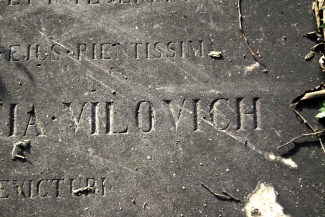
- British rule from 1813 to 1815 under the command of Peter Lowen.
- Occupied by Austria, first by obligation from 1797 to 1806, later by the Vienna Treaty from 1815 to 1918.
- The last Italian government school was abolished in Korčula on the 13th of September 1876.[36][37][38]
- Under the Treaty of Rapallo (Nov. 12, 1920 between Italy and Kingdom of Serbia, Croatia & Slovenia.),[39] Korčula became part of the Kingdom of Serbia, Croatia & Slovenia which was renamed Kingdom of Yugoslavia in 1929. After World War II Dalmatia was divided between three republics of Communist Yugoslavia. Most of the territory went to Croatia.
- In 1991 Korčula became part of the independent Republic of Croatia.
Additional:
- Venetian citizens and Ragusan (today Dubrovnik region) families migrated to the island.
- Croatian (and other groups) migrations in 16th and 17th century caused by the Ottoman invasions.
In this editors opinion to-days Korčula was originally a Roman town. It was built in the early middle ages as a fortification against invading tribes. Latter became a dual Latin Roman-Slavic town in the middle ages. With the arrival of Venetians in the 15th century it continued to evolve as such until the end of the Republic itself in 1797. The town's old centre is of Venetian construction [40] and many have pointed out its similarities to Venetian architecture. Today we have surnames on the island that are not of Slavic origin, for example:
- Izmaeli - originally de Ismael
- Gabrijeliċ - originally Gabriel
- Đunio - originally de Giunio
- Bonguardo
- Depolo
- Sambrailo
- Jakov Baničević - originally Jacobus Bannissius
- Don Marko Bono of Žrnovo
- D'Angelis
- Sessa
- Bernardi
- Fabris [41]
- Vidali - surname of a noble family from the 16th century. [42]
- Buskariol
Statement by Croatian Historian Sime Peričić:
| “ | It is true, then a small colony of Italians where in Sibenik, on the island of Korcula, Hvar and Vis, and other places of the province.[43] | ” |
In the 19th century the island became heavily influenced by Pan-Slavism and the Croatian Nationalistic movements. Pan-Slavism was later in the 20th century reinforced by the Yugoslavian governments. The Communist Yugoslavian regime (1945-92) had a huge influence on the island of Korčula and the historic region of Dalmatia. The Yugoslav Communist party [44] was the main driving force in all social matters within the former Yugoslavia. Its Stalinist policies from the 1940s to the 1960s and authoritarian rule [45][46] have been mostly ignored in the Western media. From the late 19 century onwards the Dalmatian Italians culture has all but disappeared from the region.
There needs to be an historical reassessment.
Paul Hollander:
| “ | Public attitudes in former communist countries have been conflicted because of the arguable complicity of many citizens in keeping the old system in power. A predominant attitude in Eastern Europe and Russia toward the former communist systems has been a mixture of oblivion, denial, and repression [47] | ” |
Trying to re-tell the history of this part of the world (old Dalmatia part of Croatia) is fraught with problems. The Yugoslav Communist party created historic falsehoods to promote its own aggressive political authoritarian agenda.
We can definitely confirm that from the 9th century onwards there were two ethnic communities living on the island in the middle ages, one being descendants of the Roman Empire and the other being of Slavic descent. [48][49] Two languages, the Romance Latin language called Dalmatian and the old Slavic Chakavian language became the norm on the island. With time these languages started to overlap. The written language was Latin. The fact that Slavs from the then neighbouring Kingdom of Croatia also spoke old Slavic Chakavian could indicate that this group of Slavs came from the same tribal group.
When the Serbian forces were annihilated in the Battle of Kosovo by the Ottoman Empire in 1389 a large group of peoples stated to migrate westward. Venetian Dalmatia started to acquire new people in its region (i.e., Croatians, Serbs, Albanians & others). When the Black Plague [50][51] depleted the island's population the Venetian authorities saw a need to bring new families to the island of Korčula. Amongst these were Shotkavian Slavic speakers. With these new added migrations the Slavic speakers became a majority (this applies more to west end of the island).
If the translation of the Defence of Korčula from Ottoman Turkish attack in 1571, originally written by Antun (Antonio) Rozanovic is untainted, we can see that the majority of the defenders of the island were by 1571 of Slavic decent. If we use this as a reference then from the mid 16th century onwards the majority of Korčula's population was indeed of Slavic origins.
Surname List from 1830's Korcula (Christening book)
Template:Col-break- Anzulovic (Anzulovic, Anzulovich)
- Basic (Bashich, Basich, Bassich, Basic)
- Batistic (Batistic, Batistich, Battistich, Battisich)
- Bello (Belo)
- Bercic (Bercic, Bercich)
- Bernardi
- Bertoleto (Bertoletto)
- Bonvardo (Bonguardo, Bonuardo)
- Budol (Bodol, Budoll, Bodoll)
- Buja (Buya, Boya)
- Calugera (Kalogjera, Callogera, Callugera)
- Carlesi (Carlessi, Karlesi, Karlessi)
- Damjanovic (Damjanovic, Damjanovich, Damyanovich)
- Depolo (Depollo)
- Despotovic (Despotovic, Despotovich)
- Devecchi (Davechi, Devechi)
- Druskovic (Druskovic, Druskovich, Druscovich)
- Fabris (Fabriss)
- Filipi (Filippi, Fillipi, Fillippi)
- Foretic (Foretic, Foretich)
- Franasovic (Franasovic, Franasovich, Franassovich)
- Gericic (Gericic, Gericich, Gerichich, Jerisich)
- Giasic (Giasic, Giasich, Giassich)
- Giunio (Junio, Gunio, Junnio, Gunnio)
- Grasic (Grasic, Grasich, Grassich)
- Guljelmi (Gulermi)
- Ivancevic (Ivancevic, Ivancevich, Ivanchevich)
- Jericevic (Jericevic, Jericevich, Yericevich, Yerichevich)
- Jurjevic (Jurjevic, Jurjevich, Yuryevic, Yuryevich)
- Kapor (Capor, Kaper, Caper, Kappor, Cappor)
- Kastelan (Kastelan, Kastellan, Castelan, Castellan)
- Klesara (Klessara, Clesara, Clessara, Clesarra, Klesarra)
- Klisura (Klissura, Klesura, Klessura)
- Kondenal (Condenal, Condinnal)
- Kuspilic (Kuspilic, Kuspilich)
- Lovricevic (Lovricevic, Lovrecevich)
- Medin (Meddin)
- Medini (Meddini, Medinni)
- Okmasic (Okmasic, Okmasich)
- Paunovic (Paunovic, Paunovich, Panovich, Pannovich)
- Perucic (Perucic, Perucich, Perusich, Peruchich)
- Pesic (Pesic, Pessic, Pessich, Pesich, Peshich)
- Petrusic (Petrusic, Petrusich, Petrasich, Petrushich)
- Portolan (Portollan, Pertolan)
- Sardi
- Sesa (Sessa)
- Sladoevic (Sladoevic, Sladoevich, Sladovich)
- Smrkinic (Smrkinich, Smerkinich, Smerkenich)
- Sponseli (Sponselli)
- Tanisic (Stanisic, Stanisich, Stanissich, Stannisich)
- Tasovac (Tasovatz)
- Trojanis (Troyanis, Troyannis, Troyaniss)
- Vilovic (Vilovic, Vilovich, Villovich)
- Vitaic (Vitaich)
- Zafron (Safron)
- Zmaic (Zmaic, Zmaich, Smaich)
Korcula dialect and Venetian
- adio/ goodbye - Venetian: adio
- afitat/ rent - Venetian: afìt
- ala/ come on - Venetian: ala
- aria/ air - Venetian: aria
- arma/ armed - Venetian: arma
- baba/ grandmother - In Venetian it means nanny
- baleta/ bullet - Venetian: bal
- banda/ side - Venetian side & flank
- balun/football - Venetian: balón
- banak/ bench - Venetian: banca
- baraka/shed or shack - Venetian: baràca
- barba/ uncle - Venetian: barba
- barilo/ barrel - Venetian: barìla
- barka/ type of local boat - Venetian: bàrca
- bareta/ cap, hat - Venetian: bareta
- bat / a type of hammer - Venetian:batu, meaning to strike.
- bevanda/ wine with water- Venetian: bevànda "watery wine"
- beštimat/ swear - Venetian: bestiemàr
- bićerin/ small glass - Venetian: bicér "glass"
- bira/ beer-Venetian: bira
- biskot/ cookies - Venetian: biscot
- boca/ bottle - Venetian:boca
- bonaca/ the sea is dead calm - Venetian: bonàca
- bonbon/ sweet - Venetian: bonbon
- botun/ botton - Venetian: boton
- bova/ bouy - Venetian: bova
- Brigela/ local nickname - Venetian: brighela meaning joker
- britva/ knife- Venetian: britolada
- bura/ northern wind - Venetian: bora
- burin/ light northern wind - Venetian: borin
- buža/ hole - Venetian: bus or buxa
- čorav/ blind - Venetian: ciòro "blind person"
- Defora in old Venetian means "from the outside".
- faca/ face - Venetian: faca
- falso/ fake - Venetian: falso "liar"
- feral/ gas lamp - Venetian: feral "lamp"
- feta/ slice - Venetian: feta
- figura/ figure - Venetian: figura
- forma/ shape - Venetian: forma
- fabrika/ factory - Venetian: frabica "construction building"
- fumar/ chimney - Venetian: fuma "smoke"
- gusti/ enjoyment - Venetian: gusto "pleasurable"
- karoca/ small carriage - Venetian: carosa carriage
- kartun/ cardboard - Venetian: carton
- kasa/ case - Venetian: casa
- katrida/ chair - Venetian: carega
- klapa/an a cappella form [52] of music - Venetian: clapa "singing crowd"
- kužin/ cousin - Venetian:cuxìn
- licenca/ licence - Venetian: icenca
- lapis/ pencil - Venetian: apis
- lavadin/ washbasin - Venetian: lavandin
- Levant/ strong easterly wind - Venetian: Levantera
- Malandrin/ Local nickname. In Venetian it means: dishonest & crook
- Maragun/ wood worker - Venetian: Marangòn
- mezo/ in between - Venetian: mèzo "half"
- mudante/underwear - Venetian: mudande
- pandur/ policemen - Venetian: panduro
- papit/ this word is used when feeding a child/ (Venetian: papa-means baby food)
- par/ pair - Venetian: par
- perun/ fork - Venetian: pirón from Greek: pirouni
- piat/ plate, dish - Venetian: piat
- pikolo/ small, little - Venetian: picolo
- pirula/ pill - Venetian: pirola
- pistun/ piston - Venetian: piston
- pištol/ pistol - Venetian: pistola
- pitar/ pot - Venetian: pitar (vas, jar)
- pitura/ paint - Venetian: pitura (painting)
- portela/ boat hatch - Venetian: portela (hatch, door)
- šiloko/ local wind - Venetian: siròco
- šporko/ dirty - Venetian: spórco
- šufit/ attic or loft - Venetian: sofìta
Chronology-Korcula Languages
• Illyrian (Delmatae) • Greek • Latin (Romans) • Romance Dalmatian (Latin) • Slavic (Old Chakavian) • Venetian • Slavic - Old Shtokavian • Italian (standardise language arrived) • Serbo-Croatian (standardise language) Modern times: Croatian (standardise language)
See also
- Korcula History (Historical Compendium of the Island of Korcula)
- Korcula Dialect
- Defence of Korcula
- Croatian Slavic Identity
- Dalmatian Italians
- Korcula and Italian Wikipedia
- Yugoslavia and Communism
Notes and References
- ^ Venice Triumphant: The Horizons of a Myth by Elisabeth Crouzet-Pavan (p60)
- ^ ""Korcula." Encyclopædia Britannica. Encyclopædia Britannica Online. Encyclopædia Britannica, 2011. Tue. 8 Mar. 2011." (2011). Retrieved on 2011-03-8.,
- Encyclopædia Britannica: "Korčula, Italian Curzola, Greek Corcyra Melaina, island in the Adriatic Sea, on the Dalmatian coast, in Croatia. With an area of 107 square miles (276 square km), it has a hilly interior rising to 1,863 feet (568 m). The Greeks colonized it in the 4th century bc. Korčula was subsequently occupied by the Romans, Goths, Slavs, Byzantines, and Genoese; the kings of Hungary and Croatia"
- ^ Encyclopaedia Britannica (publ. 1911):
- "CURZOLA (Serbo-Croatian Korcula or Karkar), an island in the Adriatic Sea, forming part of Dalmatia, Austria; and lying west of the Sabioncello promontory, from which it is divided by a strait less than 2 M. wide. Its length is about 25 m.; its average breadth, 4 m. Curzola (Korcula), the capital and principal port, is a fortified town on the east coast, and occupies a rocky foreland almost surrounded by the sea."
- ^ According to recent studies done at the University of Zadar, Slavs on the island of Korčula accepted Christianity fully in the 14th century. Reference from: University of Zadar-Sociogeographic Transformation of the Western Part of Korcula Island by Lena Mirosevic-2008 (p161)
- ^ Some of the latest research studies:
- Becoming Slav, Becoming Croat: Identity Transformations in Post-Roman and and Early Medieval Dalmatia by Danijel Dzino
- When Ethnicity did not Matter in the Balkans by John Van Antwerp Fine.
- Venice and the Slavs: The Discovery of Dalmatia in the Age of Enlightenment by Larry Wolff.
- ^ Note: Recent DNA studies have stated that more than three quarters of today's Croatian men are the descendants of Europeans who inhabited Europe 13 000-20 000 years ago. The first primary source (factual-that its authenticity isn't disputed) to mention the Croatian-Hrvat identity in the Balkans was Duke Branimir (Latin: "Branimiro comite dux cruatorum cogitavit" c. 880 AD). Branimir was a Slav from Dalmatia.
- ^ The Siege of Candia (modern Heraklion-Crete) was a military conflict in which Ottoman forces besieged the Venetian ruled city and were victorious. Lasting from 1648 to 1669, it is conceded by some to be the longest siege in history.
- ^ Researches on the Danube and the Adriatic: By Andrew Archibald Paton. Chapter 4. The Dalmatian Archipelago. (p164)
- Andrew Archibald Paton (1811-1874) was a British diplomat and writer from the 19th century.
- ^ Otok Korčula (2nd edition) by Marinko Gjivoje, Zagreb 1969.
- The book outlines A-Z about the island of Korcula, from traditions, history, culture to wildlife, politics & geography. (p46-p47): Piruzović
- ^ History-Korcula.net Marko Marelic-S. Francisco-USA
- ^ The Land of 1000 Islands by Igor Rudan
- ^ University of Zagreb: Faculty of Philosophy
- Some of the finds from Vela Spila (Big Cave) are on display at the University of Zagreb and the Center for Culture in Vela Luka.
- ^ The Cambridge Ancient History Vol. 11 : The High Empire, AD 70-192 by Peter Rathbone
- ^ An Inventory of Archaic and Classical Poleis: An Investigation Conducted by The Copenhagen Polis Centre for the Danish National Research Foundation by Mogens Herman Hansen,2005,Index
- ^ Hrcak Portal of scientific journals of Croatia: Lumbarda Psephisma, the Oldest Document about the Division of Land Parcels in Croatia from the Beginning of the 4th or 3rd Century BC by Miljenko Solaric & Nikola Solaic (University of Zagreb).
- ^ Swedish University - Essays Swedish (www.dissertations.se): Researcher, Traveller, Narrator. Studies in Pausanias' Periegesis-University Dissertation from Almqvist & Wiksell International Stockholm Sweden.
- ^ Studi sulla grecità di occidente by Lorenzo Braccesi (p68)
- ^ Encyclopedia Britannica.
- The Roman province of Illyricum stretched from the Drilon River (the Drin, in modern Albania) in the south to Istria (modem Slovenia and Croatia)
- ^ Croatian Adriatic: History, Culture, Art & Natural beauties
- ^ Historical Compendium of the Island of Korcula by Nikola Ostojic (p6)
- ^ John Everett-Healu. "Dalmatia." Concise Dictionary of World Place-Names. Oxford University Press. 2005. Encyclopedia.com
- ^ The Age of the Dromon: The Byzantine Navy ca. 500-1204 by John H. Pryor, Elizabeth & Jeffreys (p67)
- ^ Becoming Slav, Becoming Croat: Identity Transformations in Post-Roman and Early Medieval Dalmatia by Danijel Dzino (p212).
- Danijel Dzino states that the 19 century theories of mass movements of people into the old Roman Province of Dalmatia are questionable. Modern Archaeological and Scholarly research seems to be saying that we are looking at much smaller groups of Slavs and Avars invading the region. The term Slav was first used by the Byzantines and was written in the 6th century in Greek (Σκλαβῖνοι-Sklabenoi). Later in Latin it was written Sclaveni. According to Danijel Dzino the term Slavs was first used by outside observers of the day to describe the newcomers. The Slavs used the term to describe themselves at a later stage. Thus began the construct identity of the new arrivals. Later the Slavic peoples started to identify themselves and separated (or were separated by others) into different groups.
- ^ Becoming Slav, Becoming Croat: Identity Transformations in Post-Roman and Early Medieval Dalmatia by Danijel Dzino (p52).
- ^ Historians of this school of thought are D. Dzino, L. Margetic, Ancic, Rapanic and Sokol.
- ^ Note: The early sources must have reflected the raid activity of the Slavic tribes within Roman Dalmatia and early small settlement.
- ^ Note: Due to the fact that Slavs from the then Kingdom of Croatia also spoke Slavic Chakavian this could indicate that they came from the same tribal group.
- ^ Stefan Nemanja (c. 1114 – 13 February 1199) was a 12th-century Serb royalty, heir to the Vukanović dynasty and Grand Prince of medieval Raška from 1166 to 1196. Nemanja was from Ribnica in Zeta, present day Podgorica which is the capital of Montenegro.
- ^ Nobles of Raška who ruled Chelmo (Zahumlje). Raška was a medieval principality created by Serbian Slavs (Costantino is referred to as Stracimir).
- ^ The Late Medieval Balkans: A Critical Survey from the Late Twelfth Century by John Van Antwerp Fine (p8)
- ^ Korcula Info (www.korculainfo.com): Korcula Town Statute from 1214
- ^ When Ethnicity Did not Matter in the Balkans: by John Van Antwerp Fine. (p103)
- ^ Smiciklas, CD V, (p237); N. Klaic, Povijest Hrvata u Razvijenom, (p130)
- ^ ""Korcula." Encyclopædia Britannica. Encyclopædia Britannica Online. Encyclopædia Britannica, 2011. Tue. 8 Mar. 2011." (2011). Retrieved on 2011-03-8.
- Encyclopædia Britannica: " A plague devastated the town in 1529, depleting the population. The burned houses of infected persons, called kućišta..."
- ^ The Shores of the Adriatic (Illustrated Edition) by F Hamilton Jackson (p239)
- ^ The Italians of Dalmatia by Luciano Monzali (p83)
- ^ Editor's Note: In the neighbouring Kingdom of Croatia-Slavonia a Croatian nationalistic movement was established and alongside that, within the Balkan region a Pan-Slavic movement was growing (the beginnings of the ill fated Yugoslavia). These political on goings started to be felt in the Kingdom of Dalmatia. The Austrians in the 1860s started to introduce (a process of Croatisation) within the Kingdom of Dalmatia a standardised Croatian language sometimes referred to as Illirski. It then replaced Italian altogether. In effect the government undertook culture genocide. For centuries the Italian language was the official language of the Dalmatian establishment. It was also the spoken language in white-collar, civil service and merchant families. Privately Italian schools were still being run in the Kingdom of Dalmatia, i.e the city of Zadar and Split (Lega Nazionale at Spalato).
- ^ Beginnings of Formal Education - Vela Luka:
| “ | Italian language was not only the official language in all public Dalmatian establishments, but also was the spoken language in a significant number of white-collar, civil service and merchant families in the cities and major markets within towns The Early Beginnings of Formal Education - Vela Luka (beginnings of literacy and Lower Primary School 1857 – 1870) (p.8 written in Croatian) | ” |
- "Finally, the Treaty of Rapallo (Nov. 12, 1920) between Italy and Yugoslavia gave all Dalmatia to the Yugoslavs except the mainland Zadar (Zara) enclave and the coastal islands of Cres, Losinj (Lussino), and Lastovo.
- "The killing continued after the war, as Tito's victorious forces took revenge on their real and perceived enemies. British forces in Austria turned back tens of thousands of fleeing Yugoslavs. Estimates range from 30,000 to 55,000 killed between spring and autumn 1945."
- "Native German and Hungarian communities, seen as complicit with wartime occupation, were brutally treated; tantamount in some cases to ethnic cleansing. The Volksdeutsch settlements of Vojvodina and Slavonia largely disappeared. Perhaps 100,000 people—half the ethnic German population in Yugoslavia—fled in 1945, and many who remained were compelled to do forced Labour, murdered, or later ransomed by West Germany. Some 20,000 Hungarians of Vojvodina were killed in reprisals. Albanian rebellions in Kosovo were suppressed, with prisoners sent on death marches towards the coast. An estimated 170,000 ethnic Italians fled to Italy in the late 1940s and 1950s. (All of these figures are highly approximate.)"
| “ | In 1262 the Venetian praised the Slavs and Latins on the island of Korcula for submitting to the prince Venice had sent. | ” |
- Encyclopædia Britannica: " A plague devastated the town in 1529, depleting the population. The burned houses of infected persons, called kućišta..."
Encyclopaedia Britannica's (publ. 1911)
Article on Korčula from 1911:
| “ | Curzola, the capital and principal port, is a fortified town on the east coast, and occupies a rocky foreland almost surrounded by the sea. Besides the interesting church (formerly a cathedral), dating from the 12th or 13th century, the loggia or council chambers, and the palace of its former Venetian governors, it possesses the noble mansion of the Arnieri, and other specimens of the domestic architecture of the 15th and 16th centuries, together with the massive walls and towers, erected in 1420, and the 15th-century Franciscan monastery, with its beautiful Venetian Gothic cloister.
The main resources of the islanders are boat-building (for which they are celebrated throughout the Adriatic), fishing and seafaring, the cultivation of the vine, corn and olives, and breeding of mules. In 1571 it defended itself so gallantly against the Turks that it obtained the designation fidelissima. From 1776 to 1797 it succeeded Lesina as the main Venetian arsenal in this region. During the Napoleonic wars it was ruled successively by Russians, French and British, ultimately passing to Austria in 1815. |
” |
External links
- Photo link for a aerial view of Korcula Town
- Korcula Info
- Vela Luka-Mediterano
- Wikipedia: Battle of Curzola
- University of Zadar (Sveučilište u Zadru-Universitas Studiorum Jadertina)
- University of Zagreb (Sveučilište u Zagrebu)
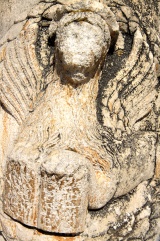
<sharethis />
Croatia Dubrovnik Neretva County Korčula Dalmatia Dalmatian Language Korcula History Korčula Dalmatian Venetian Romans Republic of Venice Venice Chakavian Croatian
